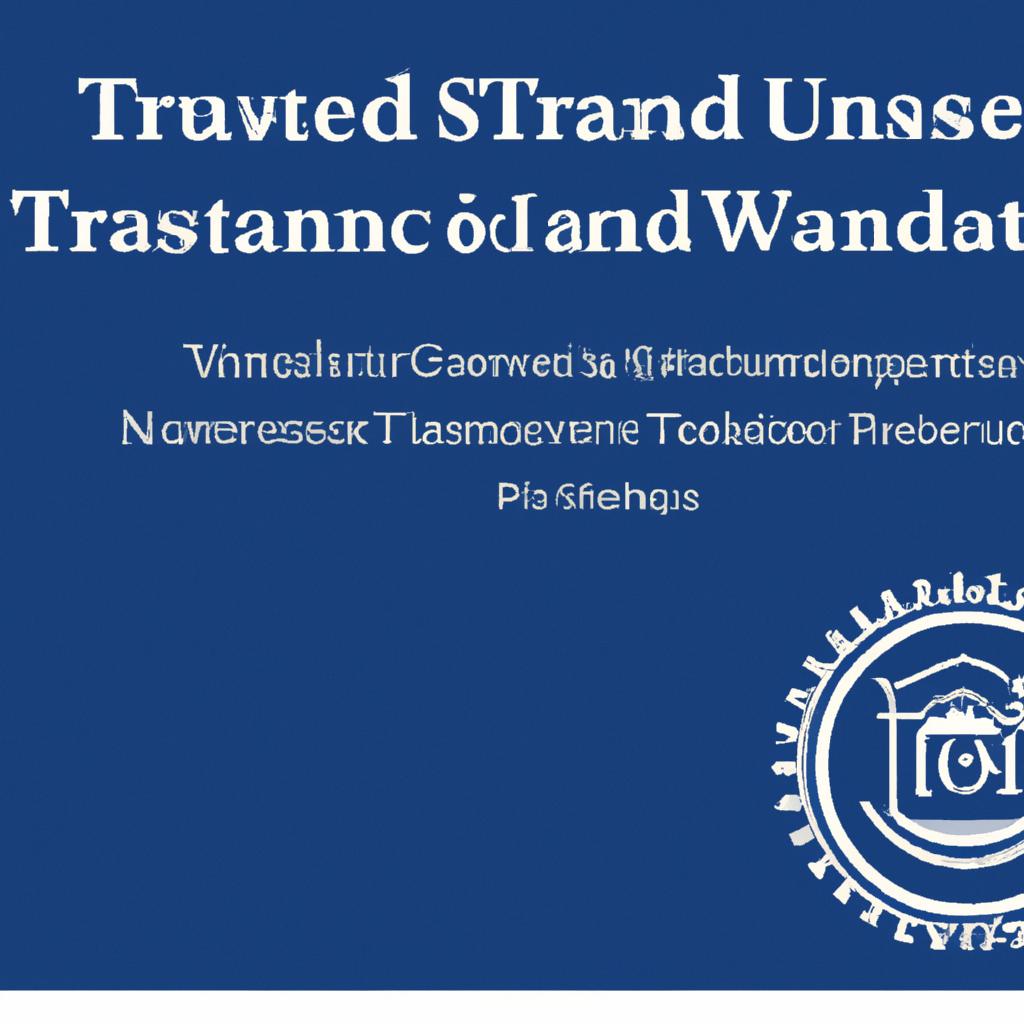In the complex world of financial planning and asset distribution, understanding the differences between trusts and estates is essential. While both are crucial in estate planning, they serve distinct purposes and functions. This article will explore the nuances of trusts and estates, shedding light on their differences and clarifying their roles in securing the future of your assets.
Exploring the Key Differences
When it comes to estate planning, understanding the distinctions between a trust and an estate is crucial. While both serve as tools to manage assets and distribute them according to your wishes, they operate in distinct ways.
Key differences between a trust and an estate:
Creation: A trust is established during your lifetime, while an estate is established upon your death.
Asset Management: A trust allows for the management of assets during your lifetime and after death, while an estate only comes into play after death.
Probate: Unlike an estate, a trust can help avoid probate, ensuring a smoother and more private transfer of assets to beneficiaries.
Flexibility: While both a trust and an estate can dictate how assets are to be distributed, a trust offers greater flexibility and control over how and when distributions are made.
Understanding these key differences can help you make informed decisions when planning for the future and ensure that your assets are managed and distributed according to your wishes.
The Benefits of Establishing a Trust
Trusts and estates are both important legal tools used to manage and distribute assets, but they serve different purposes and have distinct benefits. Establishing a trust can offer several advantages over simply relying on a will to handle your estate.
Privacy: Unlike a will, which becomes a matter of public record once it goes through probate, a trust allows for the transfer of assets to be done privately and without the involvement of the court, protecting the privacy of your beneficiaries and keeping your financial affairs out of the public eye.
Avoiding Probate: Placing assets in a trust can bypass probate altogether, ensuring a smooth and efficient transfer of wealth to your loved ones.
Flexibility and Control: Trusts offer greater flexibility and control over how your assets are managed and distributed, allowing you to specify detailed instructions for how your assets should be handled, providing peace of mind that your wishes will be carried out as intended.
Navigating the Probate Process
Understanding the difference between a trust and an estate is crucial when planning for the future and ensuring your assets are protected.
Trust:
A trust is a legal entity that holds assets on behalf of a beneficiary.
Assets placed in a trust are managed by a trustee, who has a fiduciary duty to act in the best interests of the beneficiary.
Estate:
An estate includes all assets and liabilities owned by an individual at the time of their death.
Upon death, the estate must go through the probate process, where assets are inventoried, debts are paid, and remaining assets are distributed to heirs.
Choosing the Right Estate Planning Option
When it comes to estate planning, understanding the difference between a trust and an estate is crucial. Both options have their own benefits and considerations, so it’s important to choose the right one based on your individual circumstances.
Trust:
Allows for greater control over how your assets are distributed.
Can help avoid probate, which can be time-consuming and costly.
Provides privacy as trusts are not public record.
Estate:
Includes all of your assets, debts, and other financial considerations.
Requires probate, involving court supervision of asset distribution.
May involve higher costs in terms of legal fees and court fees.
Ultimately, the decision between a trust and an estate will depend on your specific goals and preferences. Consult with a legal and financial expert to determine which option aligns best with your wishes and financial situation.
Concluding Remarks
In conclusion, understanding the difference between a trust and an estate is crucial when it comes to managing your assets and planning for the future. By choosing the right option for your needs, you can ensure that your wishes are carried out smoothly and efficiently. Whether you opt for a trust or an estate, it’s important to seek professional guidance to navigate the complex world of estate planning. Plan ahead, protect your assets, and leave a lasting legacy for your loved ones. The choice is yours – trust or estate, the decision is in your hands.

The Ultimate Guide to Understanding Trusts vs. Estates
Introduction
When it comes to estate planning, many people are often confused about the difference between trusts and estates. Both are important components of estate planning, but they serve different purposes and have distinct benefits. In this comprehensive guide, we will delve into the key differences between trusts and estates, their advantages and disadvantages, and how to decide which option is right for you.
What is an Estate?
An estate is a legal entity that is created upon a person’s death to manage and distribute their assets. It encompasses all the property, possessions, and investments owned by the deceased individual. The process of managing and distributing an estate is overseen by an executor or personal representative, who is responsible for carrying out the deceased person’s wishes as outlined in their will.
Key Points about Estates:
- Created upon a person’s death
- Includes all assets owned by the deceased individual
- Managed and distributed by an executor
- Governed by the terms of the deceased person’s will
What is a Trust?
A trust is a legal arrangement that allows a person (the grantor) to transfer their assets to a trustee, who holds and manages them on behalf of the beneficiaries named in the trust. Trusts are often used to avoid probate, minimize estate taxes, and provide ongoing financial support to beneficiaries. There are different types of trusts, each serving a specific purpose based on the grantor’s objectives.
Key Points about Trusts:
- Legal arrangement between grantor, trustee, and beneficiaries
- Assets are held and managed by the trustee
- Can help avoid probate and minimize estate taxes
- Can provide ongoing financial support to beneficiaries
Trusts vs. Estates: Key Differences
While both trusts and estates are important tools in estate planning, there are key differences between the two:
| Trusts | Estates |
|---|---|
| Avoids probate | Subject to probate |
| Can provide privacy | Public record |
| Can offer ongoing control over assets | Control ends at death |
| Can minimize estate taxes | May incur estate taxes |
Benefits of Trusts
– Avoids probate process
– Provides privacy
– Offers ongoing control over assets
– Minimizes estate taxes
Benefits of Estates
– Governed by the deceased person’s will
– Executor ensures wishes are carried out
– May provide a clear roadmap for asset distribution
Choosing Between Trusts and Estates
When deciding between trusts and estates, it is important to consider your individual circumstances, goals, and preferences. If you value privacy, ongoing control, and want to avoid probate, a trust may be the best option for you. On the other hand, if you prefer a more straightforward and traditional approach, an estate plan may suit your needs better. Consulting with an estate planning attorney can help you navigate the decision-making process and create a plan that aligns with your wishes.
Case Study: Trust vs. Estate
Let’s consider the case of a couple with significant assets who want to ensure their children are financially secure after their passing. They decide to create a trust to hold their assets and provide distributions to their children over time. By setting up a trust, they are able to avoid probate, minimize estate taxes, and maintain control over the distribution of their assets.
Practical Tips for Estate Planning
– Review and update your estate plan regularly
– Consider the needs and preferences of your beneficiaries
– Seek professional guidance from an estate planning attorney
– Clearly communicate your wishes to your family members
Conclusion
In conclusion, trusts and estates are both crucial components of estate planning that serve different purposes and offer unique benefits. By understanding the differences between the two, you can make informed decisions about which option aligns with your goals and objectives. Whether you choose a trust, an estate plan, or a combination of both, taking the time to create a comprehensive estate plan can provide peace of mind and ensure your assets are managed and distributed according to your wishes.


